Carl E. Olson's Blog, page 284
September 22, 2011
New from Fr. Robert Spitzer, S.J.: "Ten Universal Principles: A Brief Philosophy of the Life Issues"
Now available from Ignatius Press:
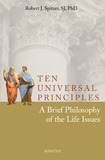 Ten Universal Principles: A Brief Philosophy of the Life Issues
Ten Universal Principles: A Brief Philosophy of the Life Issues
by Fr. Robert J. Spitzer, S.J.
• Also available in electronic book format
How do we make sense of life? How should we treat others? How should we reasonably be expected to be treated by others? When human life is at stake, are there reasonable principles we can rely on to guide our actions? How should our laws be framed to protect human life? What kind of society should be built?
Many people rely on their religious beliefs to answer these questions. But not everyone accepts the same religious premises or recognizes the same spiritual authorities. Are there "public arguments"-reasons that can be given that do not presuppose agreement on religious grounds or common religious commitments-that can guide our thoughts and actions, as well as our laws and public policies?
In Ten Universal Principles: A Brief Philosophy of the Life Issues, Jesuit Father Robert Spitzer sets out, in a brief, yet highly-readable and lucid style, ten basic principles that must govern the reasonable person's thinking and acting about life issues. A highly-regarded philosopher, Father Spitzer provides an intelligent outline for thinking and talking about human life. This book is a powerful tool for persuasively articulating and effectively inculturating a prolife philosophy.
"Ten Universal Principles is a true philosopher's gift to all who sincerely wish to live wisely and well."
- Robert P. George, McCormick Professor of Jurisprudence, Princeton University
"Lucid, limpid, logical. Fr. Spitzer's elegant and readable book about the life issues provides the tools for knowledge, and his view of his audience is rooted in his vision of man as a being who wants to know."
- J. Budziszewski, University of Texas, Author, What We Can't Not Know: A Guide
Fr. Robert Spitzer, SJ, is a philosopher, educator, author and former President of Gonzaga University. He is founder and President of the Magis Institute, an organization dedicated to public education on the relationship among the disciplines of physics, philosophy, reason, and faith. He is the head of the Ethics and Performance Institute which delivers web-based ethics education to corporations and individuals. He is also President of the Spitzer Center of Ethical Leadership, which delivers similar curricula to non-profit organizations. His other books include Healing the Culture and Five Pilars of the Spiritual Life.
September 21, 2011
Reading and misreading Chesterton
Jay Parini, professor of English at Middlebury College, has penned an essay, "Rethinking Chesterton", that appears in a recent edition of The Chronicle of Higher Education. He writes:
Chesterton's work includes nearly every type of writing—poetry, philosophy, literary criticism, biography, political and social argument, playwriting, detective fiction, and Christian apologetics. Yet he was, in the main, a journalist at heart, pumping out weekly columns for a variety of papers, especially The Daily Mail, on every conceivable subject, and his devoted audience included the likes of Mahatma Gandhi, who was "thunderstruck" by Chesterton's fierce independence of thought.
Jorge Luis Borges, the great Argentine fabulist, never failed to mention Chesterton among his favorite writers. Being a fan of detective fiction, he too adored the Father Brown stories, regarding Chesterton, with Edgar Allan Poe and Conan Doyle, as a founding father of the genre. Yet it was more than the detective fiction that interested Borges; he quoted Chesterton extensively as a linguistic philosopher, crediting him with "the most lucid words written about language."
Writers often gravitated toward Chesterton, including George Bernard Shaw and H.G. Wells, both ardent socialists but good, if contentious, friends during his lifetime. Indeed, Chesterton debated Shaw in public on several occasions, and Chesterton's own idiosyncratic but highly suggestive history of the world (The Everlasting Man, 1925) might be considered a riposte to Wells's The Outline of History (1919). (Wells regarded human beings as a species who evolved from a highly primitive form and might one day use their intelligence to establish a peaceful and prosperous world. Chesterton thought that impossible; human beings would continue to suffer from something akin to what Christians call "original sin.") Among later writers, T.S. Eliot and J.R.R. Tolkien admired him, while W.H. Auden took the trouble to edit a selection from Chesterton's nonfiction in 1970.
The reason for the interest is simple: Few writers have ranged so widely and so well, in aphoristic prose that repays thoughtful rereading. At his best, as in his Charles Dickens: A Critical Study (1906), Chesterton ranks among the finest critics of English literature. His studies of Victorian fiction and poetry (there is also a remarkable 1903 book on Browning) still command our attention, and his Autobiography (1936) is among the treasures of that genre—a genial if rambling production that brings English life and letters during the early decades of the 20th century into vivid relief.
It's a decent essay, with many good and welcome points, but Parini badly misreads Chesterton in at least one instance:
One hears this characteristic note of prickly opposition in the very first sentence of the Autobiography: "Bowing down in blind credulity, as is my custom, before mere authority and the tradition of the elders, superstitiously swallowing a story I could not test at the time by experiment or private judgment, I am firmly of opinion that I was born on the 29th of May, 1874, on Campden Hill, Kensington; and baptised according to the formularies of the Church of England in a little church of St. George opposite the large Waterworks Tower that dominated that ridge."
In other words, for Chesterton, hardly any firm ground exists. So he bows in "blind credulity" to "mere authority" and the "tradition of elders," though he seems to do so for whimsical reasons.
To the contrary, for Chesterton there is plenty of firm ground. The opening of his Autobiography is a sarcastic broadside against those who would deny the essential value and central place of authority, tradition, and history, making the simple point that every man—even the most avowed atheist or staunch relativist—must accept basic facts and truths in order to begin their assault on facts and truth. At the end of his Autobiography, Chesterton touches on this topic again:
That almost any other theology or philosophy contains a truth, I do not at all deny; on the contrary, that is what I assert; and that is what I complain of. Of all the other systems or sects I know, every single one is content to follow a truth,
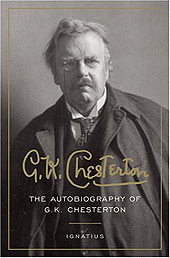 theological or theosophical or ethical or metaphysical; and the more they claim to be universal, the more it means that they merely take something and apply it to everything. A very brilliant Hindu scholar and man of science said to me, "There is but one thing, which is unity and universality. The points in which things differ do not matter; it is only their agreement that matters." And I answered, "The agreement we really want is the agreement between agreement and disagreement. It is the sense that things do really differ, although they are at one." Long afterwards I found what I meant stated much better by a Catholic writer, Coventry Patmore: "God is not infinite; He is the synthesis of infinity and boundary." In short, the other teachers were always men of one idea, even when their one idea was universality. They were always especially narrow when their one idea was breadth. I have only found one creed that could not be satisfied with a truth, but only with the Truth, which is made of a million such truths and yet is one. And even in this passing illustration about my own private fancy, this was doubly demonstrated. If I had wandered away like Bergson or Bernard Shaw, and made up my own philosophy out of my own precious fragment of truth, merely because I had found it for myself, I should soon have found that truth distorting itself into a falsehood. Even in this one case, there are two ways in which it might have turned on me and rent me. One would have been by encouraging the delusion to which I was most prone; and the other by excusing the falsehood which I thought most inexcusable. First, the very exaggeration of the sense that daylight and dandelions and all early experience are a sort of incredible vision would, if unbalanced by other truths, have become in my case very unbalanced indeed. For that notion of seeing a vision was dangerously near to my old original natural nightmare, which had led me to move about as if I were in a dream; and at one time to lose the sense of reality and with it much of the sense of responsibility. (emphasis added)
theological or theosophical or ethical or metaphysical; and the more they claim to be universal, the more it means that they merely take something and apply it to everything. A very brilliant Hindu scholar and man of science said to me, "There is but one thing, which is unity and universality. The points in which things differ do not matter; it is only their agreement that matters." And I answered, "The agreement we really want is the agreement between agreement and disagreement. It is the sense that things do really differ, although they are at one." Long afterwards I found what I meant stated much better by a Catholic writer, Coventry Patmore: "God is not infinite; He is the synthesis of infinity and boundary." In short, the other teachers were always men of one idea, even when their one idea was universality. They were always especially narrow when their one idea was breadth. I have only found one creed that could not be satisfied with a truth, but only with the Truth, which is made of a million such truths and yet is one. And even in this passing illustration about my own private fancy, this was doubly demonstrated. If I had wandered away like Bergson or Bernard Shaw, and made up my own philosophy out of my own precious fragment of truth, merely because I had found it for myself, I should soon have found that truth distorting itself into a falsehood. Even in this one case, there are two ways in which it might have turned on me and rent me. One would have been by encouraging the delusion to which I was most prone; and the other by excusing the falsehood which I thought most inexcusable. First, the very exaggeration of the sense that daylight and dandelions and all early experience are a sort of incredible vision would, if unbalanced by other truths, have become in my case very unbalanced indeed. For that notion of seeing a vision was dangerously near to my old original natural nightmare, which had led me to move about as if I were in a dream; and at one time to lose the sense of reality and with it much of the sense of responsibility. (emphasis added)
As for Chesterton's acceptance of the authority of the Catholic Church, it was anything but "whimsical", as a reading of either The Catholic Church and Conversion or The Thing: Why I Am a Catholic attests. In the former, for example, Chesterton wrote:
But it is one thing to conclude that Catholicism is good and another to conclude that it is right. It is one thing to conclude that it is right and another to conclude that it is always right. I had never believed the tradition that it was diabolical; I had soon come to doubt the idea that it was inhuman, but that would only have left me with the obvious inference that it was human. It is a considerable step from that to the inference that it is divine. When we come to that conviction of divine authority, we come to the more mysterious matter of divine aid. In other words. we come to the unfathomable idea of grace and the gift of faith; and I have not the smallest intention of attempting to fathom it. It is a theological question of the utmost complexity; and it is one thing to feel it as a fact and another to define it as a truth.
In the latter, Chesterton refers to the "special spiritual authority" of the Catholic Church, and then, later, criticizes the notion that good authority must be distrusted for no good reason:
I have chosen the subject of the slavery of the mind because I believe many worthy people imagine I am myself a slave. The nature of my supposed slavery I need not name and do not propose specially to discuss. It is shared by every sane man when he looks up a train in Bradshaw. That is, it consists in thinking a certain authority reliable; which is entirely reasonable.
Other examples abound, but here is a passage from St. Thomas Aquinas about the place and need of proper authority:
The ordinary modern critic, seeing this ascetic ideal in an authoritative Church, and not seeing it in most other inhabitants of Brixton or Brighton, is apt to say, "This is the result of Authority; it would be better to have Religion without Authority." But in truth, a wider experience outside Brixton or Brighton would reveal the mistake. It is rare to find a fasting alderman or a Trappist politician, but it is still more rare to see nuns suspended in the air on hooks or spikes; it is unusual for a Catholic Evidence Guild orator in Hyde Park to begin his speech by gashing himself all over with knives; a stranger calling at an ordinary presbytery will seldom find the parish priest lying on the floor with a fire lighted on his chest and scorching him while he utters spiritual ejaculations. Yet all these things are done all over Asia, for instance, by voluntary enthusiasts acting solely on the great impulse of Religion; of Religion, in their case, not commonly imposed by any immediate Authority; and certainly not imposed by this particular Authority. In short, a real knowledge of mankind will tell anybody that Religion is a very terrible thing; that it is truly a raging fire, and that Authority is often quite as much needed to restrain it as to impose it. Asceticism, or the war with the appetites, is itself an appetite. It can never be eliminated from among the strange ambitions of Man. But it can be kept in some reasonable control; and it is indulged in much saner proportion under Catholic Authority than in Pagan or Puritan anarchy. Meanwhile, the whole of this ideal, though an essential part of Catholic idealism when it is understood, is in some ways entirely a side issue. It is not the primary principle of Catholic philosophy; it is only a particular deduction from Catholic ethics. And when we begin to talk about primary philosophy, we realise the full and flat contradiction between the monk fasting and the fakir hanging himself on hooks.
For more on the life and thought of Chesterton, see Fr. Paine's Introduction to the 2006 Ignatius Press edition of Chesterton's Autobiography:
Saint Ruth Pakaluk?
Theresa Civantos, an editorial assistant at The Weekly Standard, reviews The Appalling Strangeness of the Mercy of God: The Story of Ruth Pakaluk: Convert, Mother, Pro-life Activist, (Ignatius Press, 2011; edited by Michael Pakaluk):
The word "saint" does not typically conjure up images of a Harvard alumna and New England housewife, but it may begin to do so if Ruth Pakaluk's story gets around. She was only 41 when cancer claimed her life. Her husband Michael has now collected the letters she wrote throughout her adulthood, and her own words compose the bulk of this biography.
In his introduction, Peter Kreeft of Boston College writes that, soon after her death in 1998, "people in Worcester [Massachusetts] wished to consider opening her cause for sainthood." So the reader wonders, was Ruth Pakaluk a "saint," or wasn't she? There's no question that this extraordinary, complex, outspoken woman is well worth getting to know. She came to Harvard as a nominal Presbyterian and practical atheist, but converted to Roman Catholicism and married her classmate in their junior year. He became an academic, while she raised their six surviving children and took an active part in local anti-abortion politics. Not much given to emotion, or what she called "ditsiness," Ruth Pakaluk is not a gushy, stereotypically "saintly" writer but a sensible, plain-spoken woman who offers matter-of-fact advice and unvarnished opinions, even when she and her correspondents markedly disagree.
She was something of a political junkie and in many letters comments on current events with shrewd humor.
Read the entire review. You can also read the book's Introduction, written by Peter Kreeft, on Ignatius Insight:
What is the main message of St. Matthew's Gospel?
The Gospel according to St. Matthew is nota text simply stringing together haphazard events and occasions that present Jesus teaching valuable and true things. Beyond 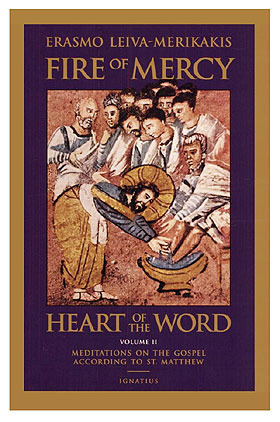 this, the Gospel text portrays the unity of Jesus' whole life. Very likely the earliest nucleus of the Gospel text is what is now its conclusion, that is, the narrative of Jesus' Passion, death, and Resurrection, which narrative no doubt constituted the heart and substance of the primitive oral kerygma, or "proclamation" of the faith by the apostles and their successors. Everything else in the Gospel text came later, composed to show how everything in Jesus' life and teaching eventually had to lead to his atoning death out of love.
this, the Gospel text portrays the unity of Jesus' whole life. Very likely the earliest nucleus of the Gospel text is what is now its conclusion, that is, the narrative of Jesus' Passion, death, and Resurrection, which narrative no doubt constituted the heart and substance of the primitive oral kerygma, or "proclamation" of the faith by the apostles and their successors. Everything else in the Gospel text came later, composed to show how everything in Jesus' life and teaching eventually had to lead to his atoning death out of love.
In Matthew's Gospel we see how, against all obstacles and opposition, Jesus moves with a sovereign sweep from the promises of God in the Old Testament, fulfilling them in his Incarnation as Messiah, to his identity as a man who does divine things and speaks divine words (parables, miracles, encounters, discourses), to the culmination of the story in his Passion, death, and Resurrection, and, finally, to the conclusion of the story in Jesus commissioning the apostles to do what they have seen him do and teach what they have seen him teach. In the end, they are to become what they have seen him be.
Thus, the main message of Matthew's Gospel is that we are not saved by detached "doctrines" or "truths", but by the whole life of this man, Jesus of Nazareth, in all its fullness and unity. All Christian theology is but a systematic reflection on this life, on everything it reveals about God and us and on everything this revelation implies for our own future life and behavior.
In the Gospel, Jesus Christ the person and his action in our lives have absolute primacy over anyone's teaching about Jesus Christ.
Read more from the Introduction to Fire of Mercy, Heart of the Word (Vol. II): Meditations on the Gospel According to St. Matthew, by Erasmo Leiva-Merikakis:
"Where God is, there is the future"
Sandro Magister reports on the Pope's upcoming visit to Germany (which begins tomorrow) and the state of Christianity in that country:
ROME, September 21, 2011 – "Where God is, there is the future": this is the title that Benedict XVI wanted to give to his third visit to Germany, which begins tomorrow.
Pope Benedict has stated repeatedly that the "priority" of this pontificate is to bring men closer to God. But the case of Germany makes this urgency of his all the more compelling.
The former East Germany, together with Estonia and the Czech Republic, is the area of Europe where atheists are most numerous, and the non-baptized are in the majority.
In Berlin and in Erfurt, the city of Luther, pope Joseph Ratzinger will enter into precisely this perimeter of maximum estrangement from the faith, in Europe.
But also in Freiburg im Breisgau, the third stage of his voyage, the weakening of the Christian faith is a widespread phenomenon.
A book was recently released in Germany, published by GerthMedien, that analyzes the decline of Christianity in this country in very straightforward terms.
The title itself is eloquent: "Gesellschaft ohne Gott. Risiken und Nebenwirkungen der Entchristlichung Deutschlands [Society without God. Risks and side effects of the dechristianization of Germany]."
The author is Andreas Püttman, 47, a researcher at the Konrad Adenauer foundation as a sociologist of cultural processes, a former recipient of the Katholischen Journalistenpreis, the prize for journalism awarded by the German Catholic media.
Not only in the east, but in all of Germany less than half of the population, 47 percent, claims to believe in God.
From 1950 until today, the number of Protestants has collapsed from 43 to 25 million. While there were 25 million Catholics in 1950 and the same number today, many of these also falling by the wayside.
While in 1950 one out of two Catholics went to Mass every Sunday, today in the western part of the country only 8 percent go. In the former East Germany, where Catholics are a small minority, the figure is 17 percent.
Read the entire essay on the Chiesa site.
St. Matthew: tax collector, "gift of God", Apostle and Evangelist
Some thoughts by Pope Benedict XVI (from his August 30, 2006, general audience), on St. Matthew, apostle and evangelist, whose feast is celebrated today:
His name in Hebrew means "gift of God". The first canonical Gospel, which goes under his name, presents him to us in the list of the Twelve, labelled very precisely: "the tax collector" (Mt 10: 3).
Thus, Matthew is identified with the man sitting at the tax office whom Jesus calls to follow him: "As Jesus passed on  from there, he saw a man called Matthew sitting at the tax office; and he said to him, "Follow me'. And he rose and followed him" (Mt 9: 9). Mark (cf. 2: 13-17) and Luke (cf. 5: 27-30), also tell of the calling of the man sitting at the tax office, but they call him "Levi".
from there, he saw a man called Matthew sitting at the tax office; and he said to him, "Follow me'. And he rose and followed him" (Mt 9: 9). Mark (cf. 2: 13-17) and Luke (cf. 5: 27-30), also tell of the calling of the man sitting at the tax office, but they call him "Levi".
To imagine the scene described in Mt 9: 9, it suffices to recall Caravaggio's magnificent canvas, kept here in Rome at the Church of St Louis of the French.
A further biographical detail emerges from the Gospels: in the passage that immediately precedes the account of the call, a miracle that Jesus worked at Capernaum is mentioned (cf. Mt 9: 1-8; Mk 2: 1-12) and the proximity to the Sea of Galilee, that is, the Lake of Tiberias (cf. Mk 2: 13-14).
It is possible to deduce from this that Matthew exercised the function of tax collector at Capernaum, which was exactly located "by the sea" (Mt 4: 13), where Jesus was a permanent guest at Peter's house.
On the basis of these simple observations that result from the Gospel, we can advance a pair of thoughts.
The first is that Jesus welcomes into the group of his close friends a man who, according to the concepts in vogue in Israel at that time, was regarded as a public sinner.
Matthew, in fact, not only handled money deemed impure because of its provenance from people foreign to the People of God, but he also collaborated with an alien and despicably greedy authority whose tributes moreover, could be arbitrarily determined.
This is why the Gospels several times link "tax collectors and sinners" (Mt 9: 10; Lk 15: 1), as well as "tax collectors and prostitutes" (Mt 21: 31).
Furthermore, they see publicans as an example of miserliness (cf. Mt 5: 46: they only like those who like them), and mention one of them, Zacchaeus, as "a chief tax collector, and rich" (Lk 19: 2), whereas popular opinion associated them with "extortioners, the unjust, adulterers" (Lk 18: 11).
A first fact strikes one based on these references: Jesus does not exclude anyone from his friendship. Indeed, precisely while he is at table in the home of Matthew-Levi, in response to those who expressed shock at the fact that he associated with people who had so little to recommend them, he made the important statement: "Those who are well have no need of a physician, but those who are sick; I came not to call the righteous, but sinners" (Mk 2: 17).
The good news of the Gospel consists precisely in this: offering God's grace to the sinner!
Elsewhere, with the famous words of the Pharisee and the publican who went up to the Temple to pray, Jesus actually indicates an anonymous tax collector as an appreciated example of humble trust in divine mercy: while the Pharisee is boasting of his own moral perfection, the "tax collector... would not even lift up his eyes to heaven, but beat his breast, saying, "God, be merciful to me a sinner!'".
And Jesus comments: "I tell you, this man went down to his house justified rather than the other; for every one who exalts himself will be humbled, but he who humbles himself will be exalted" (Lk 18: 13-14).
Thus, in the figure of Matthew, the Gospels present to us a true and proper paradox: those who seem to be the farthest from holiness can even become a model of the acceptance of God's mercy and offer a glimpse of its marvellous effects in their own lives.
September 20, 2011
G. K. Chesterton's timeless, timely hymn
Here is a wonderful poem, "O God of Earth and Altar" (1906), by G. K. Chesterton, sometimes also called, "Chesterton's Prayer"; over the years it has apparently appeared in a number of (mostly) Anglican hymnals:
O God of earth and altar, 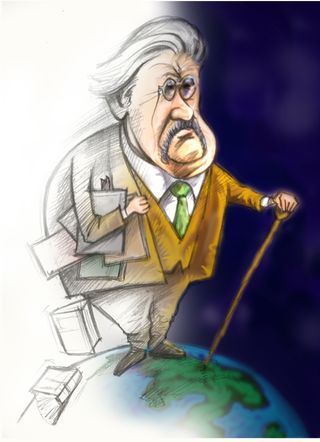
Bow down and hear our cry,
Our earthly rulers falter,
Our people drift and die;
The walls of gold entomb us,
The swords of scorn divide,
Take not thy thunder from us,
But take away our pride.
From all that terror teaches,
From lies of tongue and pen,
From all the easy speeches
That comfort cruel men,
From sale and profanation
Of honor, and the sword,
From sleep and from damnation,
Deliver us, good Lord!
Tie in a living tether
The prince and priest and thrall,
Bind all our lives together,
Smite us and save us all;
In ire and exultation
Aflame with faith, and free,
Lift up a living nation,
A single sword to thee. Amen.
For more on Chesterton as a poet, see the essay, "G.K. Chesterton, the Poet", by Denis J. Conlon, the Introduction to Volume X: Collected Poetry (Part III) of G.K. Chesterton: Collected Works.
(I drew the illustration (pencil, with color added in Photoshop) for Envoy magazine back in 2003 for an article by Dale Ahlquist titled, "G. K. Chesterton: Oversized Apologist for an Underfaithed World".)
20% off new fall books from Ignatius Press
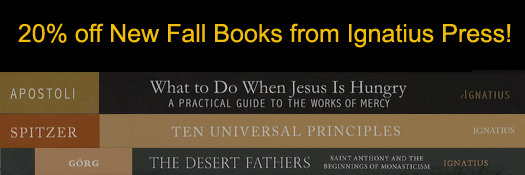
Offer ends Tuesday, September 27th, 2011 at 12:00 midnight EST.
These prices are available online only through Ignatius.com
Popular author Michael O'Brien has a new novel out: The Father's Tale. With moving and thought-provoking images, places and personalities, this book is a must read! Also available are books from well known authors Fr. Spitzer and Fr. Apostoli, plus four new titles in the IP-Magnificat Children's book series! Whether you are looking for a book to help your children learn about their faith, or you want to enrich your knowledge of Saint Anthony and the Beginnings of Monasticism or the Corporal Works of Mercy, we offer something for everyone!
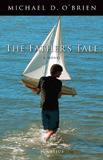 The Father's Tale
The Father's Tale
A Novel
Michael O'Brien
Canadian bookseller Alex Graham is a middle-age widower whose quiet life is turned upside down when his college-age son disappears without any explanation or trace of where he has gone. With minimal resources, the father begins a long journey that takes him for the first time away from his safe and orderly world. As he stumbles across the merest thread of a trail, he follows it in blind desperation, and is led step by step on an odyssey that takes him to fascinating places and sometimes to frightening people and perils.
Also available as an e-book.
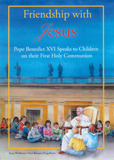 Friendship With Jesus
Friendship With Jesus
Pope Benedict XVI talks to Children on Their First Holy Communion
Amy Welborn
In this beautifully illustrated book by Ann Engelhart, Amy Welborn introduces Pope Benedict's profound yet simple answers to various questions put to him by children in Rome who had recently made their First Holy Communion. Pope Benedict's answers, and the children's wonderful questions concerning this very important spiritual occasion in their young lives, provide inspiring text for this beautiful gift book for First Communion.
 Ten Universal Principles
Ten Universal Principles
A Brief Philosophy of the Life Issues
Fr. Robert J. Spitzer, S.J.
In Ten Universal Principles: A Brief Philosophy of the Life Issues, Jesuit Father Robert Spitzer sets out, in a brief, yet highly-readable and lucid style, ten basic principles that must govern the reasonable person's thinking and acting about life issues. A highly-regarded philosopher, Father Spitzer provides an intelligent outline for thinking and talking about human life. This book is a powerful tool for persuasively articulating and effectively inculturating a prolife philosophy. Also available as an e-book.
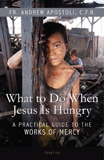 What to Do When Jesus is Hungry
What to Do When Jesus is Hungry
A Practical Guide to the Works of Mercy
Fr. Andrew Apostoli
According to the Gospel of Matthew, Jesus will judge us on the basis of whether or not we fed him when he was hungry, gave him drink when he was thirsty, welcomed him when he was a stranger, clothed him when he was naked, and visited him when he was sick or in prison. What we have done for others, he will tell us, we have done for him. The Catholic Church has traditionally called these six acts of kindness-along with a seventh, burying the dead -- the "Corporal Works of Mercy." In this down-to-earth yet inspiring guide, Father Andrew Apostoli, C.F.R., explains the Corporal Works of Mercy and illustrates multiple ways we can do them in our modern everyday life. Also available as an e-book.
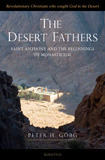 The Desert Fathers
The Desert Fathers
Saint Anthony and the Beginnings of Monasticism
Peter H. Gorg
In the late third century, more and more people withdrew to the radical seclusion of the desert so as to live entirely for God under the direction of a spiritual father. Among these "Desert Fathers" one figure is especially preeminent: Saint Anthony the Hermit. This book takes the reader back to the hour when monasticism was born and describes the life of those revolutionary Christians who sought God in the Egyptian desert. The focus of the book is the life and work of Saint Anthony, whose experiences of the spiritual life have a timeless beauty and validity, even for those not called to live as a monk. Also available as an e-book.
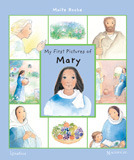 My First Pictures of Mary
My First Pictures of Mary
Maite Roche
Key moments in Mary's life are illustrated with one large picture and, on the opposing pages, several smaller pictures containing details from the scene. By pointing out and naming the pictures with a parent, even very young children can come to know and love Mary, the mother of Jesus.
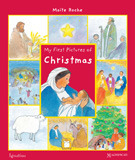 My First Pictures of Christmas
My First Pictures of Christmas
Maite Roche
Baby Jesus, Mary and Joseph, the shepherds, the angels, and the wise men - all are illustrated with large, inviting pictures. On the opposing pages, are several smaller pictures with details from the scene: the donkey, the manger, the sheep, etc. By pointing out and naming the pictures with a parent, even very young children can come to know and love the Christmas story.
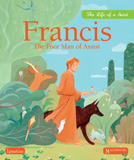 Francis
Francis
The Poor Man of Assisi
Juliette Levivier
Francis of Assisi, one of the most famous and beloved saints, comes to life for young people in this addition to The Life of a Saint series. With vivid, four-color pictures on every page, the book shows Francis becoming a brother and friend to all- lepers, the poor, and animals too.
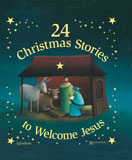 24 Christmas Stories to Welcome Jesus
24 Christmas Stories to Welcome Jesus
The joy and hope of Christmas are at the heart of this book intended for the whole family. Richly illustrated, this collection includes stories based on the Gospel accounts of the birth of Christ, as well as stories about Advent and Christmas customs. Also presented are original tales about living the Christmas message.
[image error]
Gain a Better Understanding of the New Translation of the Roman Missal
Would you personally like to embrace the liturgy in a deeper way through study of the Roman Missal?
Is your parish looking to inform and teach parishioners about the changes to the new Roman Missal?
Do you struggle getting parishioners to attend evening or weekend programs to share this information?
Are you seeking a low-cost, solidly Catholic, easily accessible and flexible program?
We Can Help
My Catholic Faith Delivered, along with the Catholic Media Secretariat of the Archdiocese of Boston, Midwest Theological Forum and St. John's Seminary, have joined forces to offer a four-lesson dynamic presentation of the New Roman Missal in an online format that provides video presentations, links to learning more, opportunities for reflections and the ability to connect with Catholics in your parish. Video presentations are delivered by some of the major leaders in the translation of the new Roman Missal including Msgr. James Moroney, Fr. Jonathan Gaspar, Cardinal George Pell, Cardinal Francis George and others. The presentations and additional materials assist Catholics in understanding the Why, the How, and the What of the upcoming changes. Ignatius Press is making this information available as a service to our readers.
For more information visit
Also, don't forget to check out our outstanding catechetical series online through My Catholic Faith Delivered:
For Additional Sale Items Click HERE!
Five good books about television and movies...
... recommended by Steven Greydanus, film critic at Decent Films Guide, and posted on ChristianityToday.com. Glad to see the recommendation of C. S. Lewis's wonderful book, An Experiment in Criticism, which should be mandatory reading for anyone interested in fiction, literature, or the arts in general.
Blessed Duns Scotus: Defender of the Immaculate Conception
The film, Blessed Duns Scotus: Defender of the Immaculate Conception, will be available from Ignatius Press in early October. Here is a bit about it, along with a short trailer:
The inspiring true story of the holy Franciscan priest and theologian who won a famous debate against the Dominicans in the 13th century in which he defended Our Lady's great privilege of her Immaculate Conception, laying the groundwork for the Church to later define that as a dogma of the Catholic faith. Filmed in beautiful ancient monastery locations in Europe, Scotus is revealed as a humble and courageous apostle of the Faith against the oppressive anti-Catholic government in power. His public defense of the papacy as the head of the Church eventually got him thrown out of the country.
An important film for Americans since the Immaculate Conception is the Patroness of the USA, this acclaimed feature film stars Italian actor Adriano Braidotti in an award-winning performance as Blessed John Duns Scotus, who was Beatified by John Paul II. The movie won major awards for Best Movie and Best Actor at the 2011 International Catholic Film Festival.
This DVD contains the following language options: Italian with English and Spanish subtitles
Carl E. Olson's Blog
- Carl E. Olson's profile
- 20 followers






